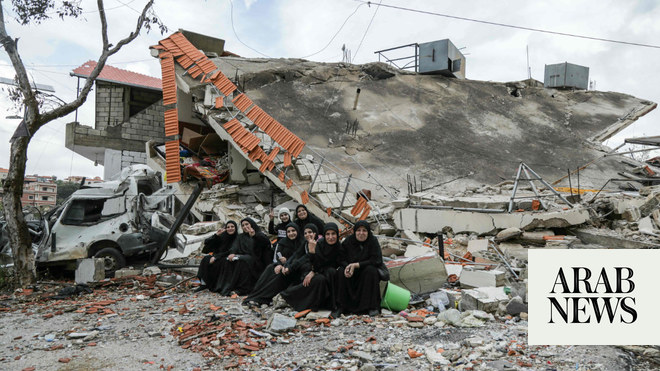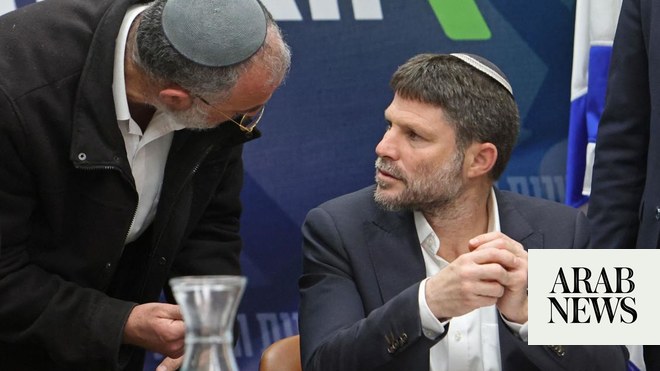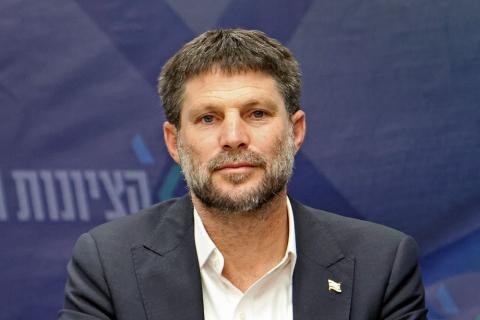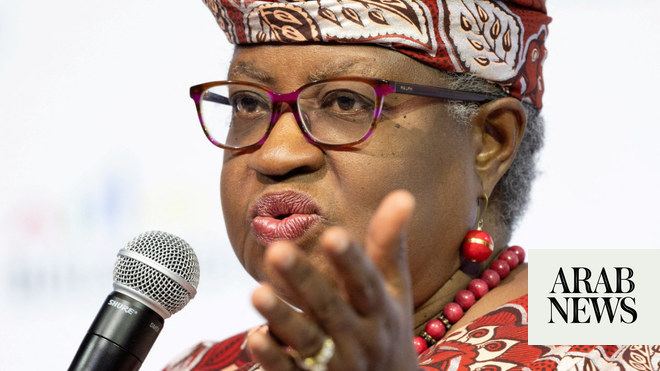
Jordan is a close Western ally and one of only two Arab states to have signed a peace treaty with Israel
King Abdullah II declined to say whether annexation would threaten that agreement
BRUSSELS: Jordan’s king warned Israel of a “massive conflict” if it proceeds with plans to annex large parts of the occupied West Bank, as European Union foreign ministers agreed on Friday to step up diplomatic efforts to try to head off such a move.
Israel has vowed to annex Jewish settlements and the Jordan Valley, which could spell the end of the long-stalled peace process by making it virtually impossible to establish a viable Palestinian state. Prime Minister Benjamin Netanyahu has moved a step closer by reaching an agreement to form a government after more than a year of political deadlock.
President Donald Trump’s Middle East plan, which overwhelmingly favors Israel and was rejected by the Palestinians, gave a green light to annexation, but most of the rest of the international community is strongly opposed.
“Leaders who advocate a one-state solution do not understand what that would mean,” Jordan’s King Abdullah II said in an interview with the German magazine Der Spiegel published Friday.
“What would happen if the Palestinian National Authority collapsed? There would be more chaos and extremism in the region. If Israel really annexed the West Bank in July, it would lead to a massive conflict with the Hashemite Kingdom of Jordan,” he said.
Jordan is a close Western ally and one of only two Arab states to have signed a peace treaty with Israel. Abdullah declined to say whether annexation would threaten that agreement.
“I don’t want to make threats and create an atmosphere of loggerheads, but we are considering all options. We agree with many countries in Europe and the international community that the law of strength should not apply in the Middle East,” he said.
At a video-conference, EU foreign ministers reaffirmed their support for a two-state solution and opposition to any annexation. The ministers, whose countries are deeply divided in their approach to Israel, agreed to ramp up diplomatic efforts in coming days with Israel, the Palestinians, the United States and Arab countries.
“We reaffirm our position in support of a negotiated, two-state solution. For this to be possible, unilateral action from either side should be avoided and, for sure, international law should be upheld,” EU foreign policy chief Josep Borrell said after chairing the meeting.
“We must work to discourage any possible initiative toward annexation,” Borrell told reporters in Brussels. “International law has to be upheld. Here, and there, and everywhere.”
He made no mention of the use of sanctions, saying only that the EU will use “all our diplomatic capacities in order to prevent any kind of unilateral action.”
The ministers had planned to welcome the formation of a new Israeli government and offer the bloc’s cooperation, but Netanyahu and his rival-turned-partner, Benny Gantz, have postponed the swearing-in of their controversial new Cabinet as the Israeli leader tries to quell infighting within his Likud party.
The ceremony, originally scheduled for Thursday, is now planned for Sunday to give Netanyahu more time to hand out coveted Cabinet appointments to members of his party. Their coalition agreement allows him to present an annexation proposal as soon as July 1.
The EU has long been committed to a two-state solution based on the 1967 lines, with the possibility of mutually agreed land-swaps. Israel seized east Jerusalem, the West Bank and the Gaza Strip in the 1967 war. The Palestinians want all three to form their future state.
The bloc has already rejected Trump’s Mideast plan, which would allow Israel to annex about a third of the West Bank, leaving the Palestinians with heavily conditioned statehood in scattered territorial enclaves surrounded by Israel.
“In our opinion, an annexation is not compatible with international law,” German Foreign Minister Heiko Maas said Friday. “From our point of view, changes to borders must, if at all, be the result of negotiations and happen in agreement between both sides.”
Jordan has been lobbying the EU to take “practical steps” to make sure annexation doesn’t happen.
In a statement, Jordan’s Foreign Minister Ayman Al-Safadi “stressed the need for the international community and the European Union in particular to take practical steps that reflect the rejection of any Israeli decision to annex.”












